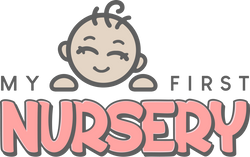
What Are Weaning Foods? A Guide for New Parents
What Are Weaning Foods? A Guide for New Parents
Understanding Weaning
Weaning is an exciting milestone for both you and your baby. It marks the transition from a milk-only diet to the inclusion of solid foods, helping your baby explore new tastes and textures. Typically, babies are ready for weaning around six months of age, though this can vary slightly from child to child. Introducing solids is not just about nutrition; it’s also about helping your baby develop eating skills that will set the stage for a healthy relationship with food throughout their life.
Shop Clair de Lune 6 in 1 High Chair >
When to Start Weaning
The signs that your baby is ready for weaning include:
1) Sitting Up: Your baby can sit up with minimal support and hold their head steady.
2) Interest in Food: They show curiosity about what you’re eating, possibly reaching out or opening their mouth when offered food.
3) Good Coordination: Your baby can pick up food and bring it to their mouth, showing a desire to self-feed.
Starting Weaning: The First Foods
Initially, your baby will only need a small amount of solid food once a day. Here are some great starter foods:
🥒 Vegetables: Opt for less sweet vegetables like broccoli, cauliflower, and spinach. These help your baby get used to a range of tastes and can prevent fussiness later on.
👇🏽Finger Foods: Soft, bite-sized pieces of food that your baby can pick up and feed themselves are great for developing hand-eye coordination.
How to Introduce Foods
Start with smooth purées and gradually move to mashed and finger foods as your baby gets used to different textures. Here are some practical tips:
Offer Small Amounts: Begin with just a few spoonful's once a day and gradually increase the amount as your baby shows interest.
Watch for Allergies: Introduce potential allergens like eggs, peanuts, and fish one at a time in small amounts and watch for any reactions.
Stay Hydrated: Offer sips of water from an open cup or a free-flow cup without a valve during meals. Avoid sugary drinks to prevent tooth decay.
Best Foods for Weaning
🥦 Vegetables
• Asparagus
• Avocado
• Broccoli
• Butternut Squash
• Cabbage
• Carrots
• Cauliflower
• Courgette
• Green Beans
• Kale
• Parsnips
• Peas
• Peppers
• Spinach
• Swede
🍓 Fruits
• Apples (cooked to soften)
• Bananas
• Blueberries
• Kiwi
• Mango
• Melon
• Nectarines
• Oranges
• Papaya
• Peaches
• Pears (cooked to soften)
• Pineapple
• Plums
• Raspberries
• Strawberries
🍞 Starchy Foods
• Baby Rice
• Bread
• Chapatti
• Cornmeal
• Maize
• Millet
• Oatmeal
• Oats
• Pasta
• Pitta Bread
• Porridge
• Potatoes
• Quinoa
• Rice
• Sweet Potato
• Toast
🍗 Protein Foods
• Beans
• Beef
• Chicken
• Egg (well-cooked)
• Fish (boneless)
• Lamb
• Lentils
• Pork
• Pulses
• Tofu
• Turkey
🥛 Dairy
• Full-fat, unsweetened yoghurt
• Full-fat cheese
• Pasteurised whole milk (in cooking or mixed with food from 6 months)

Foods to Avoid
• Salt: Babies should not consume more than 1 gram of salt per day.
• Sugar: Avoid adding sugar to foods and limit sugary snacks.
• Honey: Avoid until 12 months due to the risk of infant botulism.
• Whole Nuts: Avoid due to choking hazards, but nut butters and ground nuts are okay from six months.
• Cow’s Milk as a Drink: Not suitable until 12 months but can be used in cooking from six months.
Baby-Led Weaning
Baby-led weaning is an approach where you offer your baby finger foods from the start, letting them feed themselves rather than spoon-feeding puréed foods. This method can encourage independence and help develop fine motor skills. However, combining baby-led weaning with spoon feeding is also a viable option. The key is to ensure your baby gets a variety of foods and nutrients.
Final Thoughts
Weaning is a unique journey for each baby, and there’s no one-size-fits-all approach. Trust your baby to guide the process by showing interest and readiness for solids. Remember to keep offering breast milk or formula as their primary nutrition source during the first year. Celebrate this new stage with patience and curiosity as you watch your baby explore and enjoy their new world of flavours and textures.
For more tips and advice, explore our range of nursery furniture at My First Nursery, designed to make every parenting milestone a bit easier and more enjoyable. Happy weaning!

